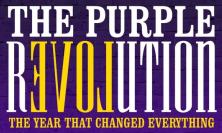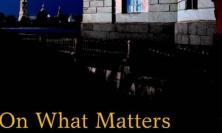From time to time, an economist produces an argument that radically challenges a prevailing consensus, Adam Smith’s The Wealth of Nations and Keynes’s General Theory being the most famous examples. These challenges arise when it becomes evident that a single school of thought that has dominated economics is unable, from its own resources, to provide answers to pressing problems. This school will itself have started as a challenge to an established orthodoxy, but over time its disciples will have become more and more obsessed with minutiae as they seek to refine their charter documents. Unfortunately, as we have learned from the inability of the neo-Keynesians to address the challenge of inflation in the 1970s and the neo-classical economists to grasp financial risk in the 2000s, the dominance of incomplete theoretical models inflicts heavy costs on those living in the real world.
The Flat White Economy is revolutionary in that it starts from a realist description of the real world – or at least of London, one of the world cities. While its author is a distinguished economist, it is readable and accessible to those who do not have an economics degree; if you can read Wolf Hall, you can read this. It truly is a ‘must read’ book, not least because the questions of immigration policy that it tackles will be prominent features on the political landscape in the run up to the UK General Election. Its prescriptions provide a benchmark for answers that Parliamentary candidates may give to some of the questions posed by the Catholic Bishops of England and Wales in their recent pastoral letter, and a demonstration of what could be done in response to the Archbishop of Canterbury’s demand for work for the labourers in the vineyard set out in his essay in On Rock or Sand? (Incidentally, that collection’s failure to address more fully the issue of immigration, one of the major concerns of voters, was a serious defect; chapter 7 of The Flat White Economy fills that gap admirably.)
Of course immigration is not just a question of economics. The Church has rightly warned of the damage that rhetoric on immigration can cause by inspiring hatred and division, which are of course contrary to the central Christian messages. McWilliams recognises the social challenges that immigration presents, and indeed he makes proposals for dealing with some of them. His analysis is, however, primarily economic; but that does not mean it is without significance to those of us who start where Thomas Aquinas starts, namely from an assumption that creation is basically good and is governed by a divine plan. The economic gain that flows from recognising the value of human persons that some would have us despise is, in a Thomist – and indeed Ignatian – framework, entirely proper evidence for those who proclaim the dignity of every human being to cite against bigotry.
On the economic consequences of immigration, McWilliams’ verdict is unequivocal, as one might gather from the title of chapter 7: ‘Immigration – the UK’s secret economic weapon.’ He argues that immigration has made a positive contribution to employment, to profitability, to creativity and to the public finances; and without it the London economy – and hence the UK economy – would not have recovered as it has. He goes on to argue that immigration is essential for continued economic progress.
He returns to this topic in his concluding chapter, ‘The Future of the Flat White Economy’, where he includes a warning not just to UKIP but to all the major parties that their promises to restrict immigration will have a heavy price. The author is open about his avowedly political objective: ‘[The book] is written in the hope that the voters can at least vote armed with the knowledge of what costs might be incurred if they indulge their more extreme views on immigration…. if the electorate vote for very tight controls on immigration, they are voting for a 6% pay cut by 2023.’ (pp. 174- 175)
The Flat White Economy gives an account of the expansion of digital business, a growth sector that is responsible for the recovery of the London economy following the crash and is set to be the largest sector in the UK and other developed economies. McWilliams does not just discuss the economics of digital businesses; he discusses the people who work in them, how they work, where and how they live and on what they spend their money. The title of the book is taken from the name of their preferred coffee, a drink that has replaced Champagne as the symbol of new London.
These digital businesses are currently concentrated the EC1V postcode of London, ‘Silicon Roundabout’, but McWilliams looks outwards to ask where else they might make an impact, and suggests that in the UK there are real prospects for economic recovery centred on such businesses in some of the great cities. However, there will still be – as there were in the 1930s, as Britain recovered from the Great Depression – areas that do not share in an overall recovery. This is deeply troubling, as was so cogently expressed by the Archbishop of Canterbury in his contribution to On Rock or Sand?
McWilliams, who shares the archbishop’s analysis that attempts to date to mend the problem by public sector initiatives have largely failed, flies a kite. Observing that the most able are attracted into the public sector rather than into industry and commerce – which has adverse consequences for growth, especially in the Small and Medium-sized Enterprise (SME) sector – he goes on to suggest that fiscal resources generated by London’s spectacular growth could be used at least in part to lower taxes on business in other areas. McWilliams identifies a potential to provide a subsidy of £2,500 per job outside the South (although resources might need to be spread more thinly in order to provide such assistance in some regions of the South itself). ‘As someone who is not only an economist but also a successful entrepreneur I can guarantee that a subsidy on this scale would seriously boost entrepreneurship.’ (p. 214) This proposal needs to be taken very seriously indeed, and it fits well with the archbishop’s conclusions on the need for recovery to be based on local not national initiatives. (On Rock or Sand?, p. 67).
The Flat White Economy renders an important service for anyone who wishes to join a debate on public policy, and it has specific messages for Christians. In explaining where growth is coming from and who is creating it, and how that growth promises to alter our lives in a digitally-based economy, it tells us something about the shape of society, which is highly relevant to the task of evangelisation. It offers suggestions for tackling some aspects of long-term poverty and deprivation.
The book’s introductory note on the author does not tell us that Douglas McWilliams was educated at by the Jesuits at Stonyhurst. A central part of Ignatian spirituality is an attention to what is happening in the world based not on abstract theory but direct examination and reflection. One reason for thinking that The Flat White Economy has captured important truths about our economy and our society is that it is so clearly based not on some abstract theorising but on the application of a powerful mind to what is actually going on in the world.
Joe Egerton was a contemporary of Douglas McWilliams at Stonyhurst and later at Oxford. When Douglas McWilliams was Deputy Director of Economics at the CBI in the late 1970s and early 1980s, Joe was Economics Director of the British Chambers of Commerce.






